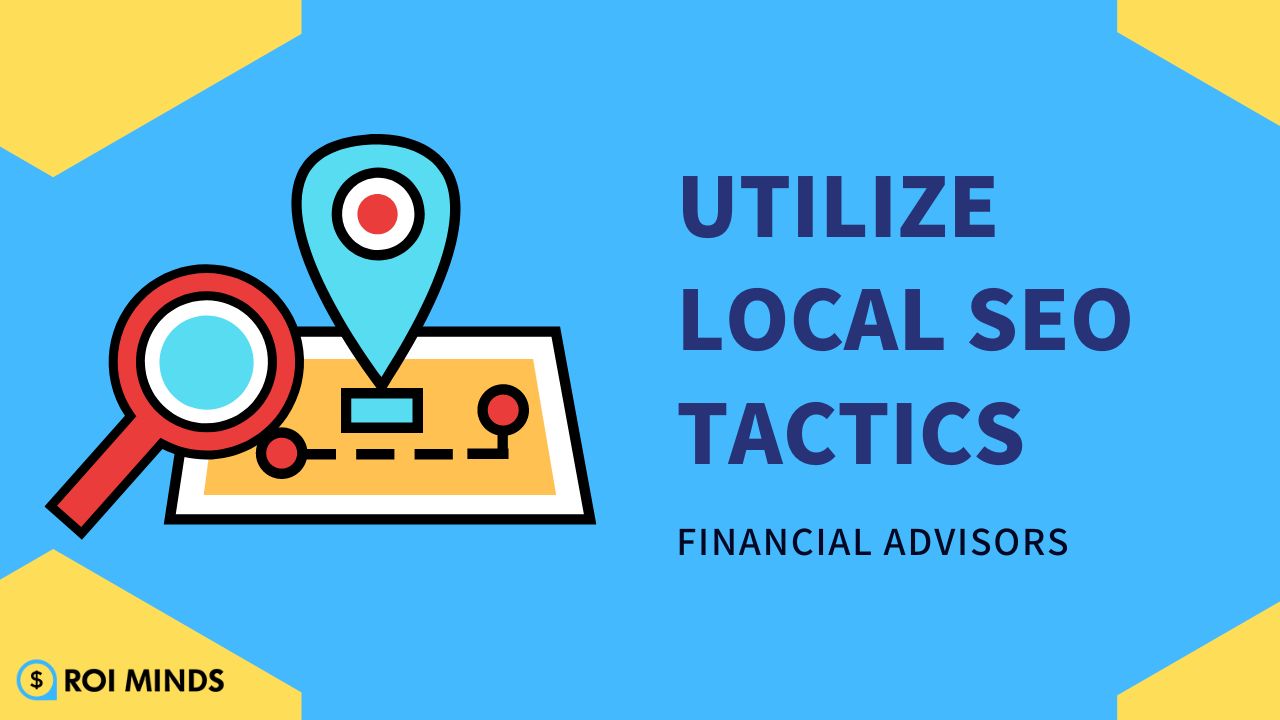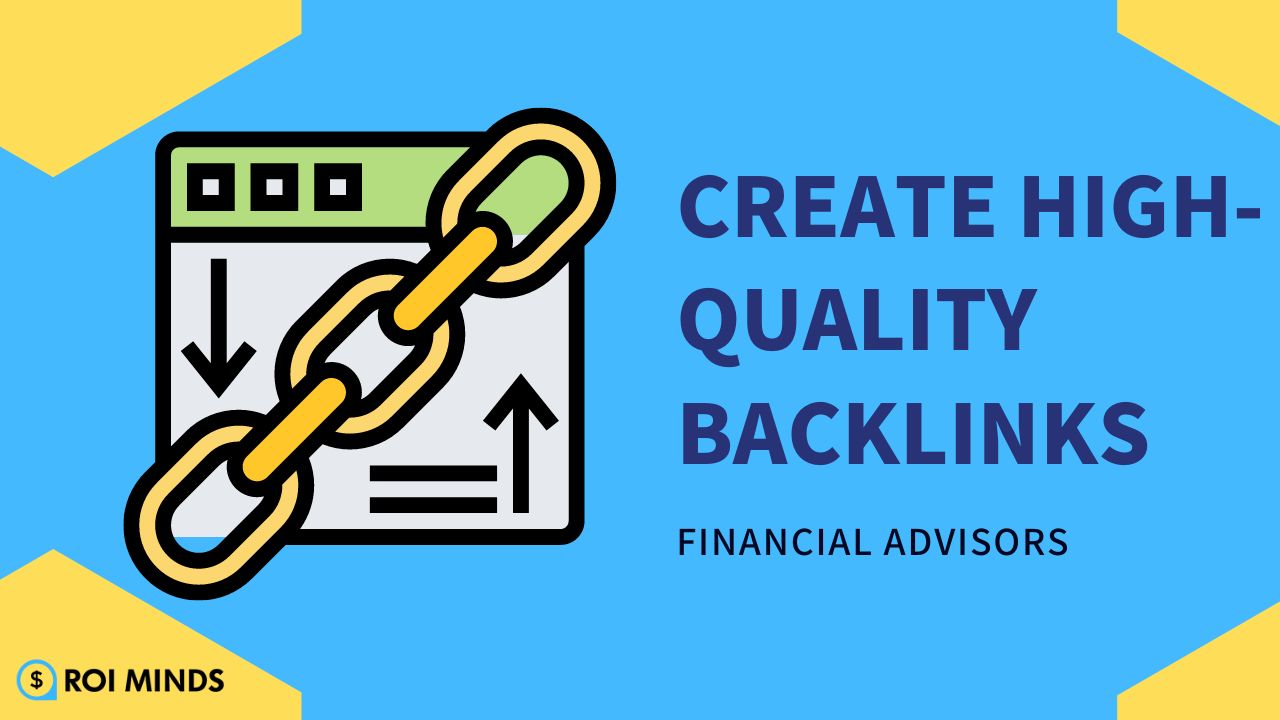Financial advisors play a pivotal role in guiding clients toward their financial aspirations. Advisors ensure a diversified investment approach by crafting tailored financial plans aligned with client needs, preferences, and risk tolerance. Staying informed about market trends and events is essential.
Ongoing support involves leveraging technology tools for enhanced services. Advisors should continually improve their skills through training, industry events, and certifications to stay competitive. Implementing SEO for financial advisors and optimizing websites becomes paramount in reaching and assisting a broader clientele, ensuring their valuable insights and support are accessible to those seeking financial guidance.
Why SEO Is Important for Financial Advisors?
SEO is important for financial advisors because it can help them appear at the top of search engine results, making them more visible and trustworthy to potential clients. This can lead to more business and opportunities. Organic traffic through SEO tips for financial advisors is a crucial part of any successful business, and SEO can help increase it.
Here are the key points highlighting the importance of organic traffic:
- Organic search drives more website traffic than paid search.
- Ranking in the top 3 organic search results gets the most clicks.
- Websites that appear on the first page of search results receive the most clicks.
- Blogs can significantly increase the number of links and indexed pages on a website.
- Regularly updating a website with fresh, high-quality content can improve its organic search ranking and attract more visitors.
6 Steps to a Successful SEO Strategy for Financial Advisors
1. Conduct Keyword Research
Keyword research is an important aspect of SEO for financial advisors. By identifying the right keywords and phrases to target, advisors can optimize their website content and improve their chances of ranking higher in search engine results pages (SERPs). This can lead to increased visibility, credibility, and organic traffic for their business.

Find Bets Keywords for Your Financial Advisor Business in Simple Steps
- Identify relevant and high-traffic keywords for financial services.
- Use tools such as Google Keyword Planner or SEMrush to research keywords.
- Consider long-tail keywords that are more specific and have less competition.
- Evaluate keyword search volumes, competition, and relevance for the target audience, incorporating SEO for financial websites to enhance visibility.
- Use the right keywords in website content and meta tags to help search engines understand the relevance and purpose of the website.
- Higher rankings in SERPs for targeted keywords and phrases can lead to increased visibility, credibility, and organic traffic for a financial advisor’s business.
As a result, effective keyword research and implementation can play a critical role in the success of SEO for financial advisors.
2. Optimize Website Structure and Content
Optimizing website structure and content is important for financial advisors to improve SEO for financial planners.

To optimize the website structure for financial advisors, follow these steps:
- Use a clear and organized website navigation menu.
- Create separate pages for each service offered.
- Use header tags to organize content on each page.
- Use descriptive URLs and page titles.
- Ensure that the website is mobile-friendly and has a fast loading speed.
- Include internal links to relevant pages on the website.
To optimize the website content for financial advisors, follow these tips for SEO for financial planners:
- Conduct keyword research: Identify relevant and high-traffic keywords to target in your content.
- Create a sitemap: This helps search engines understand the structure of your website and the hierarchy of your pages.
- Use descriptive URLs: Include targeted keywords in your page URLs to help search engines understand the relevance of your content.
- Optimize page titles and meta descriptions: Include targeted keywords in these elements as one of the most used SEO for financial services to improve the click-through rate from search results.
- Use header tags: Use header tags (H1, H2, H3, etc.) to structure your content and make it easier to read for both search engines and users.
- Optimize images: Use descriptive filenames and alt tags for your images to help search engines understand the content of your pages.
- Create high-quality, engaging content: Your content should be informative, helpful, and engaging for your target audience.
3. Perform Competitor Analysis
Performing competitor analysis is an essential part of SEO tips for financial advisors. By analyzing competitors’ websites, advisors can gain valuable insights into their strengths and weaknesses, as well as identify opportunities to improve their own website’s performance.

To perform competitor analysis for financial advisors, the following SEO for financial websites is a must:
- Identify the main competitors in the financial services industry.
- Analyze competitors’ websites, looking at factors such as website structure, content, keywords, and backlinks.
- Determine the competitors’ ranking on search engine results pages (SERPs).
- Identify the keywords and phrases that competitors are targeting and ranking for.
- Look for gaps or weaknesses in competitors’ strategies that can be leveraged to improve your SEO for financial services.
- Use the insights gained from competitor analysis to optimize your own website’s structure, content, and SEO strategy.
4. Utilize Local SEO Tactics
Local SEO tips for financial advisors include targeting customers in their local area through online search results. To do this, advisors need to optimize their website and online listings for local search terms such as “financial advisor near me” or “financial planning in [city]”. This can be done by including relevant keywords in website content, meta tags, and local business listings like Google My Business.

Here are the steps to implement local SEO for financial advisors:
- Claim and optimize Google My Business listing
- Use consistent NAP information across all online directories
- Implement local keywords in website content and meta tags
- Encourage positive online reviews from clients
- Utilize social media to engage with the local community
- Participate in local events and sponsorships
- Monitor and track local search rankings and adjust strategy accordingly.
5. Use Social Media Platforms
Social media is highly beneficial in the case of SEO for financial services. It allows them to connect with their target audience and promote their services. By using platforms like LinkedIn, Facebook, Twitter, and Instagram, advisors can share their expertise, engage with potential clients, and establish their credibility.

This can help to attract new clients, increase brand awareness, and build long-term relationships with existing clients. Social media can also drive traffic to their website and improve their search engine rankings through social signals.
Benefits of using social media marketing for financial advisors:
- Increased brand visibility and recognition
- Improved communication and engagement with clients
- Cost-effective marketing strategy
- Opportunities for networking and building relationships
- Ability to showcase expertise and thought leadership
- Access to valuable data and insights on the target audience and industry trends.
6. Create High-Quality Backlinks
Creating high-quality backlinks is essential for improving a website’s authority and ranking higher in search engine results pages (SERPs).

To create high-quality backlinks, financial advisors can follow these steps:
1. Guest blogging on relevant websites and including a backlink in the author bio or within the content is an effective tip for SEO for financial advisors.
2. Participating in forums and online communities related to finance and leaving a link to the website or relevant content in the comments or discussions.
3. Collaborating with other financial professionals or companies in the industry to create content and link to each other’s websites.
4. Creating shareable and valuable content such as infographics, videos, and blog posts that people want to link to and share.
5. Listing the website on reputable directories and industry-specific websites.
6. Using social media platforms to share content and attract links from other websites.
7. Measure SEO Success

To measure the success of SEO for financial advisors, there are various types of tools and metrics that can be used, including:
1. Google Analytics: This tool provides valuable insights into website traffic, including the number of visitors, pages viewed, and the source of the traffic.
2. Keyword rankings: Tracking the rankings of targeted keywords can help determine the effectiveness of SEO for financial advisors.
3. Backlink analysis: Monitoring the quantity and quality of backlinks to the website can provide an indication of the website’s authority and trustworthiness.
4. Conversion rate: Measuring the percentage of visitors who take a desired action on the website, such as filling out a contact form or making a purchase, can help determine the effectiveness of the website in generating leads and sales.
5. Engagement metrics: Metrics such as bounce rate, time on page, and pages per session can help gauge the effectiveness of the website in engaging visitors.
By using these tools and metrics, financial advisors can track the success of SEO for financial websites and make data-driven decisions to improve their online visibility and grow their business.
Conclusion:
Based on the 7 best SEO tips for financial advisors in 2023, financial advisors can take certain steps to improve their online presence and attract potential clients. These steps include performing effective keyword research, optimizing website structure and content, using social media platforms for marketing, creating high-quality backlinks, and measuring the success of SEO for financial planners using various tools. By implementing these strategies, financial advisors can increase their visibility and credibility online, ultimately leading to more clients and business success.
How we can Help You to Grow Your Financial Advisor Business in 2023

ROI Minds, a digital marketing agency, can help you grow your financial advisor business in 2023. They provide a range of digital marketing services, including website design and optimization, social media marketing, email marketing, and content marketing. By leveraging expertise in SEO for financial services, one can attract new clients, retain existing ones, and increase revenue. Their data-driven marketing approach ensures that your campaigns are effective and provide a measurable return on investment. Working with ROI Minds can help you achieve your professional goals as a financial advisor.
FAQ For SEO Strategy For Financial Advisors in 2023
Ans. Here are the strategies commonly used by financial advisors, presented briefly:
1. Investment Planning: Suggest suitable investments for clients to help them save for their financial goals based on their risk tolerance and objectives.
2. Retirement Planning: Helping clients create a comprehensive retirement plan using the right retirement accounts and optimizing Social Security benefits.
3. Tax Planning: Analyzing a client’s tax situation to suggest ways to reduce their tax liability, such as using tax-deferred retirement accounts, tax-loss harvesting, and charitable giving.
4. Estate Planning: Creating an estate plan that minimizes taxes, distributes assets according to the client’s wishes, and provides for loved ones.
5. Risk Management: Recommending insurance coverage and strategies to protect against unforeseen events such as disability or death.
6. Debt Management: Develop a debt management plan that prioritizes debt repayment and creates a budget to avoid future debt.
7. Behavioral Coaching: Providing guidance and support to help clients make rational financial decisions and stay focused on their long-term goals.
Ans. Here are the common methods financial advisors use to advertise their services, presented briefly:
1. Referral Programs: Encouraging satisfied clients to refer their friends and family to their services.
2. Networking: Building relationships with professionals who may refer clients to their services.
3. Digital Marketing: Creating a professional website, using social media platforms and targeted online ads to reach potential clients.
4. Print Ads: Advertising in local newspapers, magazines, and other print publications.
5. Seminars and Workshops: Host educational events to establish themselves as experts and build relationships.
6. Direct Mail: Send targeted mailers to potential clients to introduce themselves and their services.
7. Community Involvement: Participating in local events and activities to raise brand awareness and build a positive reputation.
Ans. Financial advisors need marketing to attract new clients and grow their businesses. By promoting their services through various channels, such as digital marketing, networking, or seminars, they can increase their visibility and reach potential clients who may not have heard of their services otherwise. Marketing also helps advisors establish their brand and differentiate themselves from competitors, which can build trust and credibility with potential clients. Ultimately, marketing is important for financial advisors to expand their practice and achieve professional success.
Ans. Financial advisors can spend anywhere from 1% to 10% of their revenue on marketing, depending on their business size, target audience, and marketing goals. Newer advisors may need to spend more to attract clients, while established advisors may spend less. The amount advisors spend on marketing also depends on the strategies they use, as some methods may be more costly than others. Ultimately, the amount advisors spend on marketing depends on their unique business needs and goals.





